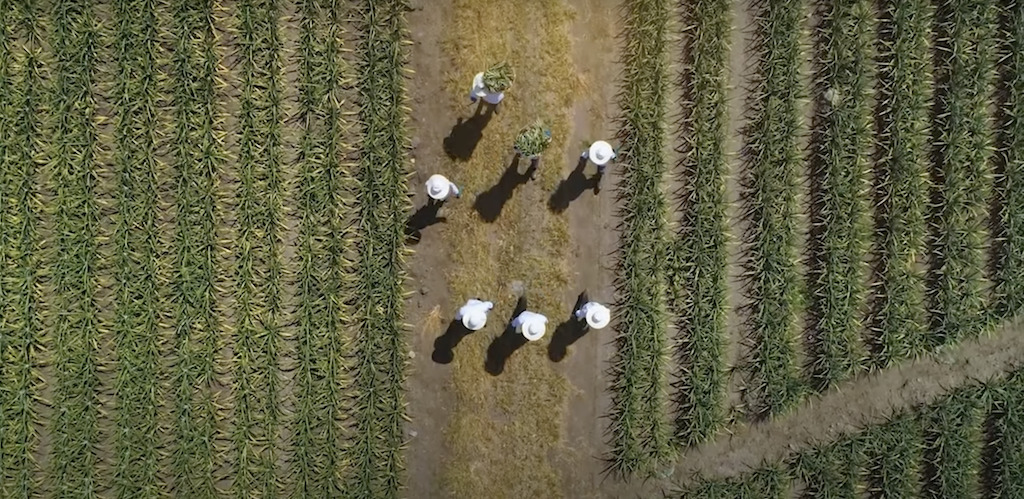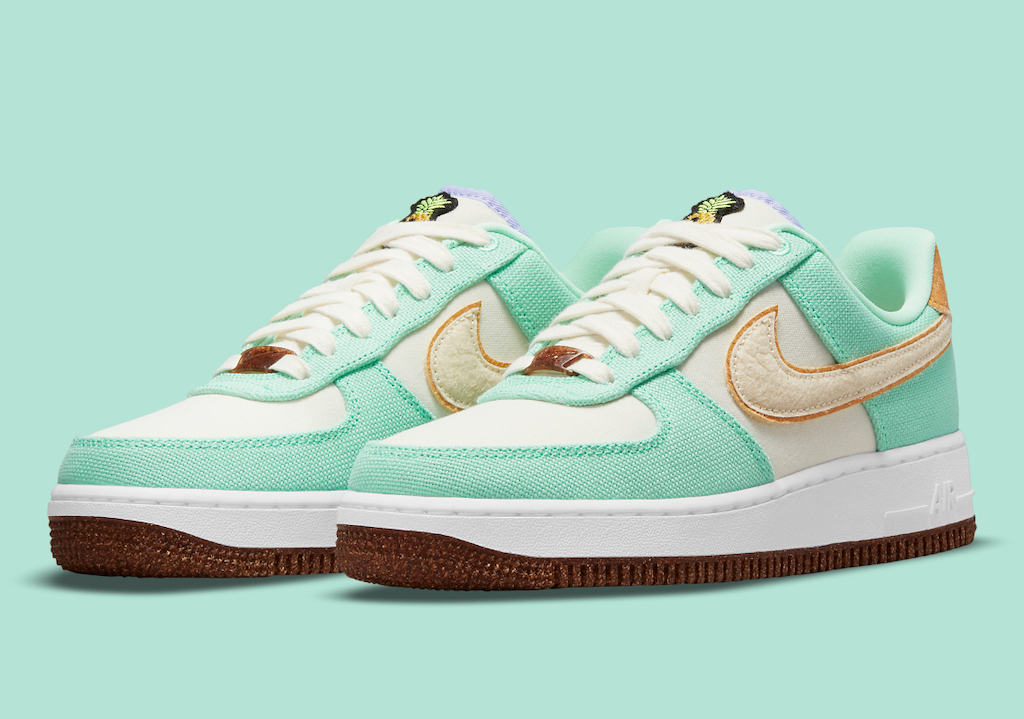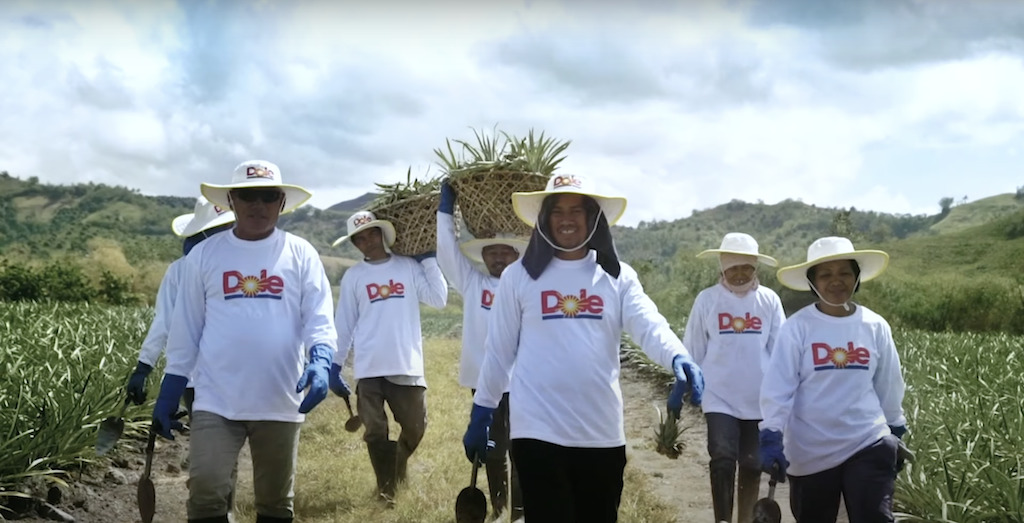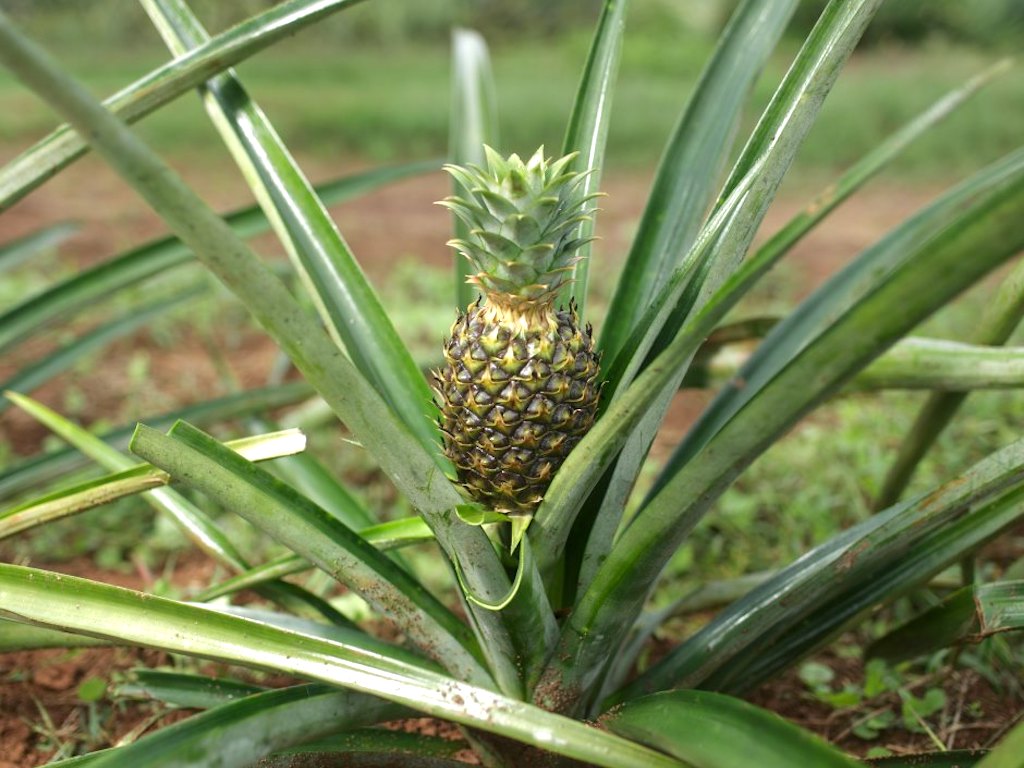4 Mins Read
After pledging to tackle food waste, fruit giant Dole is now working with Ananas Anam, the startup behind the vegan leather Piñatex. The partnership will see leftover pineapple leaves from Dole’s farms in the Philippines repurposed into ethical, sustainable, animal-free leather that is currently being used to make everything from shoes to bags.
Dole, the world’s largest fruit and vegetable producer, is now teaming up with London startup Ananas Anam. The startup is behind Piñatex, the vegan pineapple-based leather alternative that’s now being used by brands like Nike. Dole says the partnership will help the company move towards its goal to eliminate food waste by 2025.
Turning pineapple leaves into leather
Under the new partnership, Dole will collect its leftover pineapple plant leaves in its Philippines plantations and send them to Ananas Anam. The fibre from the leaves will be extracted, dried and processed, turning it into a non-woven mesh that forms the base of Pinatex.

According to Ananas Anam, each square metre of Pinatex saves 8 kilograms of CO2 equivalent compared to real animal-based leather.
Piñatex is an increasingly popular vegan replacement for leather used in a range of goods, predominantly in fashion but also in upholstery and automotives. Aside from Nike, other brands now using Piñatex to create new cruelty-free products include H&M, Paul Smith, and Hugo Boss.
Dole described the collaboration as “another step towards its promise of zero fruit loss by 2025” and part of its contribution to reducing unsustainable materials. “Addressing food waste is absolutely important to us, as it is connected to our business and our lives in so many ways,” commented Pier-Luigi Sigismondi, global president at the Dole Sunshine Company.
Food waste represents one of the most overlooked contributors to climate change. Globally, food waste and loss accounts for 10% of all GHG emissions.

Read: 931 million tonnes of food is being wasted every year – UN report
New revenue streams for farmers
Beyond tackling food waste, Dole says that the new initiative will bring in fresh revenue streams for pineapple farmers in the Philippines, one of the world’s largest producers of the fruit. Pineapple leaves that would otherwise go to waste can now be monetised, helping to improve the livelihoods of small-scale growers in the region.
“Working closely with Dole’s teams on the ground will help us to create a wider positive social impact among farming communities and to continuously reduce our environmental footprint by valorising waste at scale,” shared Melanie Broye-Engelkes, CEO of Ananas Anam.
Dr. Carmen Hijosa, founder and chief creative officer at the startup, added that the rising demand for its animal-free leather should help “promote social, ecological and cultural development.” Working with Dole’s pineapple suppliers, especially small-scale farmers, will be part of the company’s goal to have both a social and environmental impact, said Hijosa.

Read: Meet these startups capitalising on food waste
Upcycling food waste
As awareness of the global food waste crisis grows, more companies are now coming up with solutions to upcycle parts of produce that would otherwise be landfilled. While Ananas Anam is using food waste to create solutions for the textile industry, other startups are repurposing wasted produce into new food products and ingredients.
Canadian company Chinova, for instance, has created an ingredient called Chiber using upcycled stems of white button mushrooms. It can be used to replace synthetic preservatives used in a wide range of CPG products.
Global food giant Nestlé, on the other hand, has taken to using coffee berry husks from its suppliers to create a new caffeinated drink called Nativ Cascara.
Lead image courtesy of Dole.




